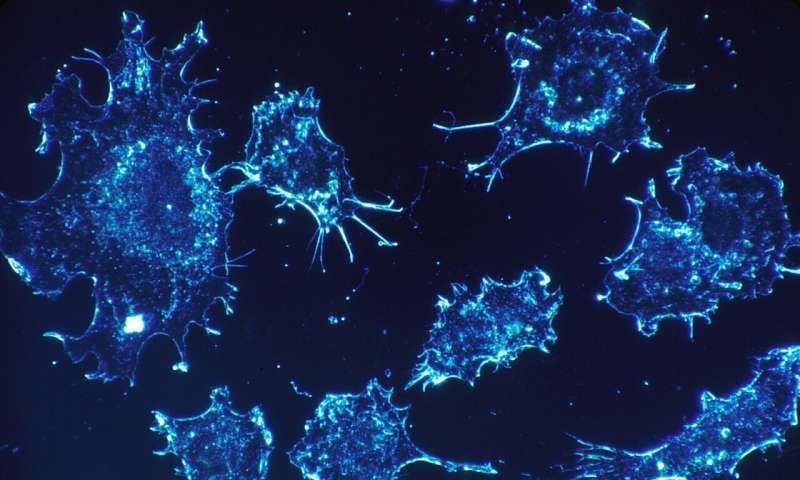Credit: Pixabay/CC0 Public Domain
Scientists from The Tisch Cancer Institute have uncovered a mechanism by which certain breast cancer cells regulate their own metastases, fuel dissemination from the original tumor site, and determine routes to invade distant organs such as the lungs, according to a study published in Cell Reports in September.
For the first time, scientists have identified a type of cancer cell in triple negative breast tumors, which is highly efficient in invading and colonizing distant organs but slow their growth upon colonization. These cells have a hallmark of slowed production of a protein called srGAP1, which is usually attributed to cancer growth.
Scientists also found in animal models that these unique cells trigger a phenomenon that keeps them in a dormant state in distant organs such as the lungs. This is an important finding because cancer cells have to efficiently survive at distant sites, and staying in this "asleep" existence allows these cells to evade therapies that target cancer cells' normal rapid growth. Cells that are missed could later become metastatic.
"Our findings emphasize the importance of considering phenotypic changes that could occur when treating cancer cells with therapeutic strategies that target proliferating cells such as chemotherapy," said Jose Javier Bravo-Cordero, Ph.D., Associate Professor of Medicine (Hematology and Medical Oncology) at The Tisch Cancer Institute at Mount Sinai. "While these treatment regimens target dividing cells, they may also be selecting for more invasive tumor cells. Our studies suggest that more selective therapeutic strategies combining treatments against both dividing cells and invasive dormant cells may be necessary to prevent metastatic disease."
To conduct this study, researchers used high-resolution in vivo imaging to visualize extravasation, the process of tumor cells exiting the blood vessels to enter a target tissue. This event was observed in real time, revealing with unprecedented detail the early stages of tumor extravasation. The microscopy studies revealed that after these tumor cells invade the lungs, they enter into a dormant state by secreting the protein TGFβ2. The studies also showed that interfering with that protein can block tumor cell invasion into the lungs.
Partners who contributed to this work include Stony Brook University, University of Illinois at Chicago, Janelia Research Campus at Howard Hughes Medical Institute and University of California at Berkeley.
More information: Chandrani Mondal et al, A proliferative to invasive switch is mediated by srGAP1 downregulation through the activation of TGF-β2 signaling, Cell Reports (2022). DOI: 10.1016/j.celrep.2022.111358 , dx.doi.org/10.1016/j.celrep.2022.111358
Journal information: Cell Reports
Provided by The Mount Sinai Hospital
























